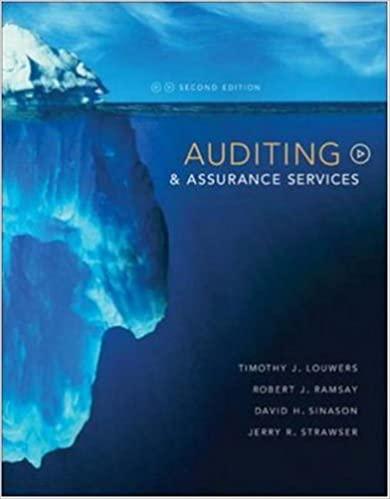Question
Derive and interpret a yield curve using historical data determine bond values. Eexplain the relationship among bond prices, term to maturity, and interest rate changes.
Derive and interpret a yield curve using historical data determine bond values. Eexplain the relationship among bond prices, term to maturity, and interest rate changes.
Action Items
Go to the Federal Reserve Web site to examine historical interest rates on U.S. Treasuries. external link. https://www.federalreserve.gov/releases/h15/data.htm
Scroll down to "Treasury constant maturities" and in the row "1-month" under "Nominal" click "Business day."
Complete the Yield Curve & Bond Valuation Worksheet.
As you can see, rates on the one-month U.S. Treasury bill are provided for each business day from July 31, 2001 to the present. For this assignment you are asked to pick a business date five years ago this month. (For example, in January 2012 I would pick a business date in January 2007.)
Then, using this row and the subsequent rows below it under Treasury Constant Maturities determine the shape of the yield curve on that date five years ago based on the rates published by the Fed by completing the table below for the listed Treasury maturities (see example below):
| Business Date Chosen Five Years Ago | 2/01/2007 | |
| 4.99 | |
| 5.13 | |
| 5.16 | |
| 5.09 | |
| 4.84 | |
| 10-year Nominal T-note Rate on that Date | 4.84 | |
| 20-year Nominal T-bond Rate on that Date | 5.02 | |
| 30-year Nominal T-bond Rate on that Date | 4.93 |
Answer the following questions:
On your selected date was the yield curve rising, falling, or flat? What explanation(s) would you give for this shape?
* The curve was rising as the rates of the treasury bills. The notes falling slightly over the time periods.
Assume that two U.S. Treasury securities were purchased at par ($1000) on your selected date five years ago: 1) a 10-year T-note and 2) a 20-year T-bond. Also assume that for each of the two securities the reported nominal rate that you found above was the coupon rate at issuance.
* Assuming semi-annual coupon payments, calculate the value of each bond today after 5 years based on the current 5-year Treasury constant maturity nominal rate for the original 10-year note and a current 15-year rate (assume it is the average of the current Treasury constant maturity nominal 10- and 20-year rates) for the original 20-year bond at http://www.federalreserve.gov/releases/h15/data.htm.
Complete the following table: 10-Year Bond Purchased for $1000 5 Years Ago
| Original Value | $1,000 |
| Coupon Rate (From table you completed above at the chosen date from 5 years ago, the original 10-year Nominal T-bond Rate divided by 2 for semi-annual payments) | 2.50 |
| Current 5-Year Yield to Maturity (The most recent 5-year Nominal T-note Rate reported at the Fed site divided by 2 for semi-annual payments) | 0.97 |
| Number of Semi-Annual Periods Remaining | 10 |
| Current Value* | 907.98 |
| Gain or Loss on the Bond over the 5 years | - 92.02 |
20-Year Bond Purchased for $1000 5 Years Ago
| Orginal Value | $1,000 | |
| Coupon Rate (From table you completed above at the chosen date from 5 years ago, the original 20-year Nominal T-bond Rate divided by 2 for semi-annual payments) | 2.51 | |
| Current 15-Year Yield to Maturity (Take the average of the most recent 10- and 20-year Nominal T-bond Rates reported at the Fed site, and then divide this average rate by 2 for semi-annual payments) | ||
| Number of Semi-Annual Periods Remaining | $30 | |
| Current Value | ||
|
NOTE: Pull the data from the website https://www.federalreserve.gov/releases/h15/data.htm. I did add in the chart what I believe some of that answers are. I used the date 2/01/17 from the dederal reserve site. I'm not sure what else I can add to this and I'd appreciate the help. Thanks
Step by Step Solution
There are 3 Steps involved in it
Step: 1

Get Instant Access to Expert-Tailored Solutions
See step-by-step solutions with expert insights and AI powered tools for academic success
Step: 2

Step: 3

Ace Your Homework with AI
Get the answers you need in no time with our AI-driven, step-by-step assistance
Get Started


